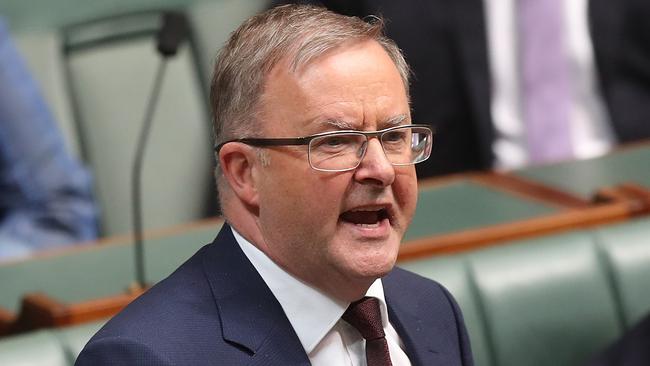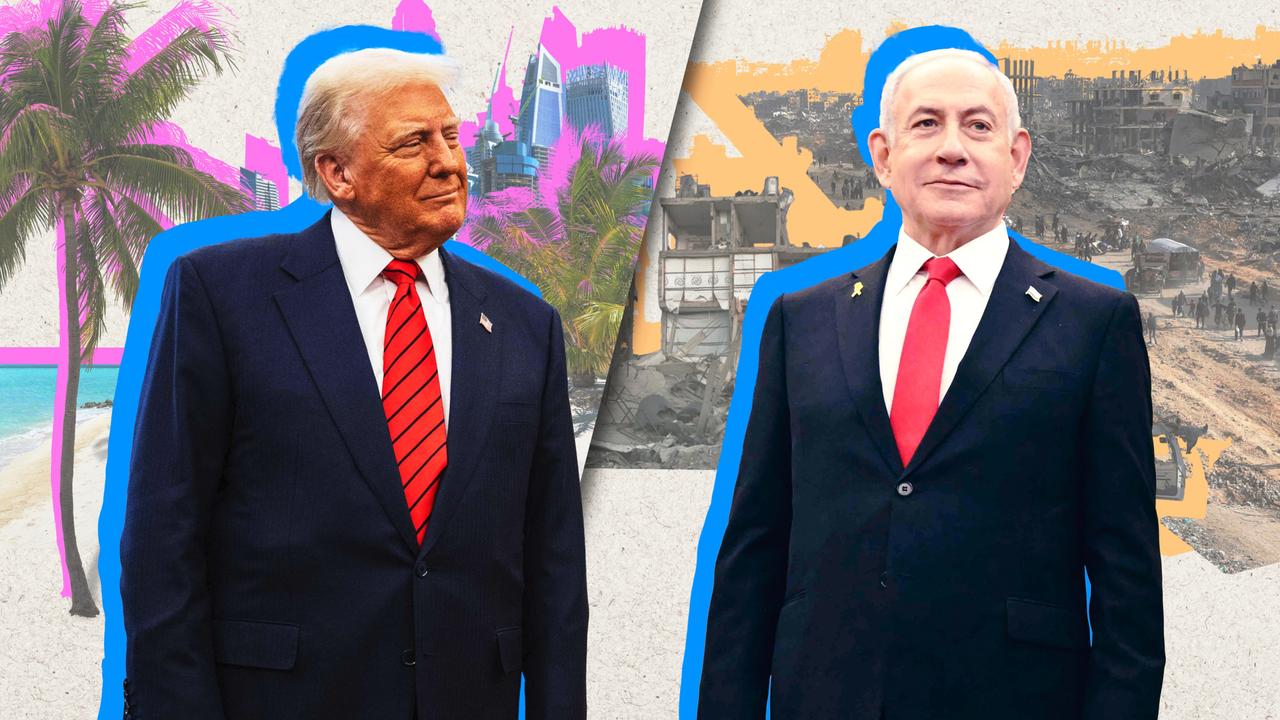Dutton’s six security bills set to test Albanese’s mettle
Peter Dutton will introduce up to six security and immigration bills into parliament today.

Home Affairs Minister Peter Dutton will introduce up to six national security and immigration bills into parliament today, challenging Anthony Albanese’s resolve on border protection and counter-terrorism.
The move sets up a showdown with Labor over its support of the government’s key security policies, which include slapping a ban on returning foreign fighters, repealing medivac laws and closing the back door for refugees entering the country.
The Opposition Leader has previously pledged to apply greater rigour in reviewing proposed national security laws in a shift away from Bill Shorten’s approach, which saw his party back tough encryption laws opposed by some Labor MPs.
In addition to introducing the Counter-Terrorism (Temporary Exclusion Orders) Bill, imposing two-year bans on citizens involved with overseas terror groups returning to Australia, Mr Dutton will bring forward bills to repeal the medivac laws, hand extra powers to police at airports, and block refugees attempting to travel to Australia via third countries.
Following counter-terrorism raids in Sydney on Tuesday, Mr Dutton said yesterday his “key priority” was keeping Australians safe, which included “denying terrorists the ability to conduct attacks on Australian soil”.
The minister said imposing temporary exclusion orders on Australian-born foreign fighters would help security agencies manage the threat they posed, by delaying and then controlling their return. “The TEO scheme ensures that if an Australian of counter-terrorism interest does return to Australia, it is with forewarning and into the hands of authorities,” Mr Dutton told The Australian. Opposition home affairs spokeswoman Kristina Keneally said Labor would consider each national security bill on its merits, and work with the government on amendments. “While the government is ultimately responsible for the national security legislation they introduce, Labor has always worked constructively to improve legislation as much as we can through the parliament,” Senator Keneally said.
The Australian understands Labor will look at including concerns over the government’s encryption laws, and its impact on journalists, as part of the press freedom inquiry.
The so-called “closing the back door” bill would prevent refugees who settled in the US under the people-swap deal with Barack Obama from coming to Australia in the future on tourist visas.
While Labor has agreed to work with the government to close the “back door” to New Zealand, it has previously rejected the need for a lifetime ban on refugees coming to Australia as tourists.
The proposed exclusion orders laws aim to prevent attacks by Australian-born terrorists by imposing renewable orders preventing them from returning to Australia for up to two years at a time.
The minister could issue a TEO in relation to Australians citizens assessed by ASIO to be a security risk, or in cases where the issuing of an order would prevent or lower the risk of a terrorist act.
The Australian understands the bill will include 16 of the 18 key recommendations made by the powerful Parliamentary Joint Committee on Intelligence and Security.
It will include a provision where a decision made by the minister to ban a “counter-terror interest” would be put to a reviewing authority, including a panel of judges overseen by the Attorney-General.
The TEOs could potentially be imposed on Australian citizens aged 14 and older. For those aged 14-17, the minister would have to consider the best interests of the minor as well as the protection of the community.
There are about 80 Australian men and women, not including other unidentified individuals, currently in Syria and Iraq who have fought for or supported Islamic extremists groups. Since 2012, about 230 Australians have travelled to Syria and Iraq to fight with or support groups involved in the regional conflict.
Setting a test for Labor on immigration policy, Mr Dutton said that under Mr Shorten the opposition voted “at least 78 times to weaken our borders” and “fought us all the way” on national security measures.
“I call on Anthony Albanese to not make the same mistakes his predecessor made and to support these very important national security measures,” he said.
Senator Keneally said yesterday that Labor had offered support for the TEO bill through the PJCIS if the government agreed to the committee’s proposed amendments.
“We have as part of that committee and, in bipartisan support with the Liberals on that committee, made clear there are a number of things that we expect the government to amend given our recommendations,” she said.
Law Council of Australia president Arthur Moses said “protecting Australians from the threat of terrorism must always be a primary concern for the federal government”.
But he warned that TEOs “could in practice weaken” national security.
“The government should not pursue a policy that leaves Australian citizens, who are our responsibility, in another jurisdiction that may not have adequate security and legislative infrastructure, where these individuals could do further harm to Australians and others, and be beyond the reach of our justice system,” Mr Moses said.
“The fact is, while they remain outside of Australia, we lose control of these individuals.”
Mr Moses called on foreign fighters to be brought back to Australia to be “tried before Australian courts and, if found guilty, detained in Australian jails”.
On their release, the Law Council said they would be able to be “monitored” by security agencies.
Legal experts have expressed concerns that TEOs could result in an indefinite rolling over of exclusion orders which potentially could ban Australians from returning permanently. The government’s bill to repeal the crossbench-Labor medivac law would overturn changes which allowed two doctors to order the medical transfer of refugees and asylum-seekers from Manus Island or Nauru to Australia for treatment.
The bill to enhance airport security would allow police and protective service officers to order a person to produce identification, and direct them to leave the facility, if they reasonably suspected they had committed or intended to commit a crime.
The government also intends to introduce a bill to roll over ASIO powers, allowing the agency to obtain warrants to question, or detain and question, people in relation to a terrorism offence. The bill needs to be passed by September 7 to ensure that the powers, introduced in 2003, don’t lapse.


